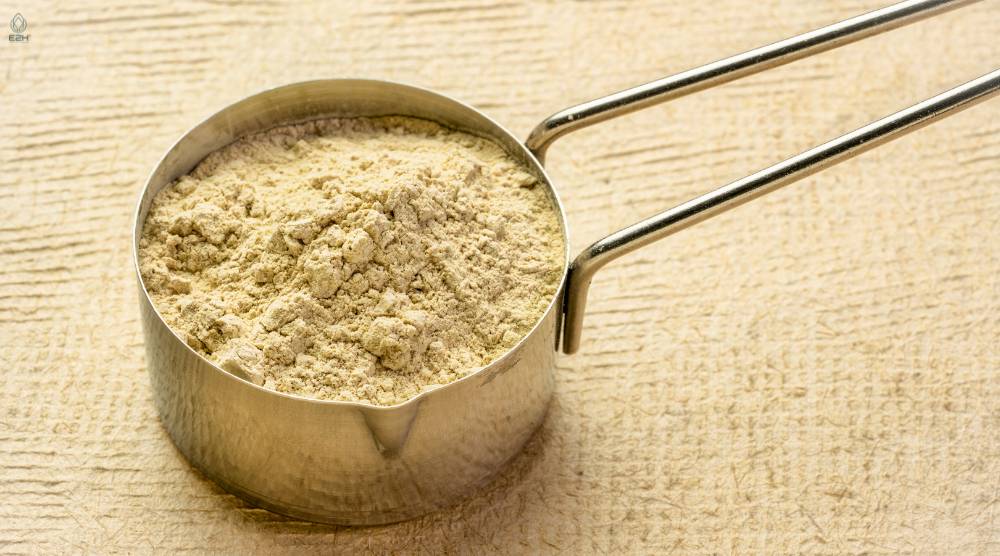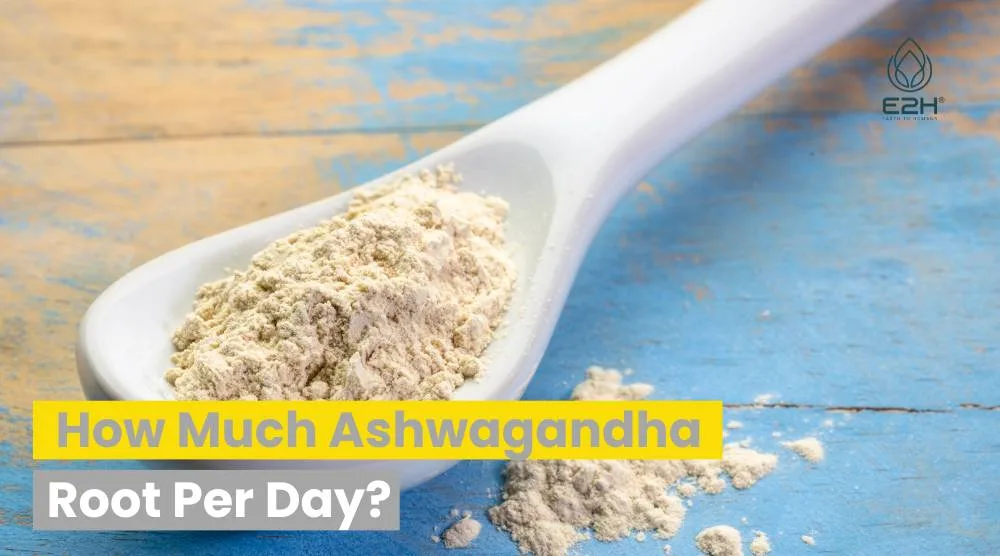Why Does Ashwagandha Give Me A Headache: Ashwagandha may cause headaches due to its impact on stress hormones and blood pressure.
If you’re curious about how to enjoy its benefits without the discomfort, keep reading for useful insights and tips.
Why Is Ashwagandha A Popular Herb In Ayurveda?
Ashwagandha, known scientifically as Withania somnifera, holds a revered place in Ayurveda due to its extensive range of health benefits. This ancient herb is classified as an adaptogen, meaning it helps the body manage stress. It’s celebrated for its ability to balance, restore, and protect the body. Ashwagandha has been traditionally used to boost energy, improve concentration, and combat the effects of stress.

Its roots and berries are used to produce a variety of remedies that address issues like anxiety, insomnia, and aging. The herb’s adaptogenic properties make it particularly effective in regulating hormonal balance and the immune system, making it a cornerstone in Ayurvedic medicine.
How Does Ashwagandha Interact With The Body To Trigger Headaches?
Ashwagandha interacts with the body in complex ways that can sometimes lead to headaches. It influences various systems, including the endocrine and nervous systems. By modulating stress hormones like cortisol, it can impact blood pressure and blood sugar levels. These changes, while often beneficial, can sometimes cause headaches, especially if the body is adjusting to the herb or if it’s taken in high doses. Additionally, ashwagandha’s impact on neurotransmitter levels, like serotonin and dopamine, can also contribute to headaches as the body tries to adapt to these changes.
Why Does Ashwagandha Sometimes Lead To Headaches?
Headaches from ashwagandha can occur due to several reasons. For some individuals, it’s a reaction to the herb’s potent effects on the body’s stress response system. Ashwagandha’s ability to modulate cortisol levels can lead to temporary imbalances that manifest as headaches.
Additionally, changes in blood sugar and blood pressure levels, as well as alterations in neurotransmitter activity, can contribute to headache symptoms. These headaches are often a sign that the body is adjusting to the herb, especially in cases where ashwagandha is taken in higher doses or introduced suddenly into the diet.
How Long Do Ashwagandha-induced Headaches Typically Last?
The duration of headaches induced by ashwagandha can vary depending on individual factors like dosage, body chemistry, and tolerance. Typically, these headaches are short-lived, lasting anywhere from a few hours to a couple of days. In most cases, as the body adjusts to the herb, the frequency and intensity of headaches decrease. If headaches persist or worsen, it may indicate a need to adjust the dosage or reconsider the use of ashwagandha.
How Can One Experience Ashwagandha’s Benefits Without Getting Headaches?
To experience Ashwagandha’s benefits without headaches, start with a low dose and gradually increase it, allowing your body to adjust. Taking it with food can help mitigate potential digestive issues that might trigger headaches. Staying well-hydrated is also important, as dehydration can contribute to headaches.

Additionally, ensure you’re using a high-quality Ashwagandha supplement, as impurities in lower-quality products can cause adverse reactions. If you notice any discomfort, consider reducing the dose or taking breaks between cycles of use. Listening to your body’s response is crucial in finding the right balance for enjoying Ashwagandha’s benefits headache-free.
How Do You Find The Right Balance Between Ashwagandha’s Benefits And Side Effects?
| Factor | Benefits | Side Effects | Balance Strategy |
|---|---|---|---|
| Dosage | Higher doses can enhance benefits like stress relief and improved sleep. | Higher doses increase the risk of side effects like headaches and digestive issues. | Start with a lower dose and gradually increase to find the optimal balance. |
| Frequency | Regular use can lead to sustained health benefits. | Overuse can lead to tolerance and increased side effects. | Take breaks or cycle the usage to prevent tolerance build-up. |
| Individual Health | Benefits can vary based on individual health conditions. | Certain health conditions can exacerbate side effects. | Tailor the use of ashwagandha to individual health needs and conditions. |
| Combination with Other Supplements | Can enhance overall health benefits. | May interact with other supplements or herbs, increasing side effects. | Consult reliable sources or literature to understand interactions and combinations. |
What Are The Dos And Don’ts For The Safe Usage Of Ashwagandha?
Dos:
- Start with a low dose to assess tolerance.
- Take ashwagandha with food to minimize digestive discomfort.
- Stay consistent with your routine for best results.
- Keep hydrated, as ashwagandha can affect hydration levels.
- Pay attention to your body’s responses and adjust accordingly.
Don’ts:
- Don’t start with a high dose; it can increase the risk of side effects.
- Don’t ignore persistent side effects like prolonged headaches.
- Don’t mix ashwagandha with other strong herbs without understanding interactions.
- Don’t use ashwagandha as a substitute for medical treatment.
- Don’t overlook the importance of a balanced diet while using ashwagandha.
In What Situations Is Ashwagandha Not The Right Choice For You?
Ashwagandha may not be suitable for everyone. Individuals with autoimmune diseases like rheumatoid arthritis or lupus should be cautious, as ashwagandha can stimulate the immune system. Those with thyroid conditions should also be wary, as it can influence thyroid hormone levels.

If you’re sensitive to nightshades, ashwagandha, a member of the nightshade family, might trigger adverse reactions. Additionally, people with a history of hormone-sensitive conditions, such as certain types of breast or prostate cancer, should avoid ashwagandha due to its potential impact on hormone levels.
It’s also not recommended for individuals with severe liver conditions, as it can affect liver function. Understanding your health status and any existing conditions is crucial in determining whether ashwagandha is a suitable supplement for you.
FAQs
Can Ashwagandha cause headaches in everyone?
Not everyone experiences headaches; it varies based on individual reactions and dosages.
Is it safe to continue Ashwagandha if I get headaches?
Moderate use is often safe, but reduce the dose or stop if headaches persist.
Does the form of Ashwagandha I take affect headaches?
Yes, different forms (powder, capsule, tincture) can impact how your body reacts.
Are there ways to mitigate headaches caused by Ashwagandha?
Staying hydrated and combining it with food may reduce headache risk.
Conclusion
Ashwagandha is a powerful herb with many benefits, it can sometimes lead to headaches. Understanding your body’s response and adjusting your intake accordingly is key. Remember, natural supplements can be potent, and what works for one person may not work for another. Stay informed, listen to your body, and you can find a way to enjoy Ashwagandha’s benefits comfortably.














